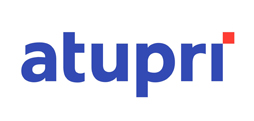Health insurance in Switzerland is both compulsory and expensive. But by following a few basic guidelines, you can drastically reduce the total cost of compulsory health insurance. Here, moneyland.ch lists 8 key ways to minimize premiums.
1. Choose the right insurance
Although the coverage provided by the Swiss basic health insurance should be exactly the same by law, the yearly premiums vary greatly from one insurance provider to another. You can save hundreds of francs per year just by choosing the most affordable insurance provider. The moneyland.ch compulsory health insurance comparison helps you find the cheapest policy in less than a minute.
Insurance premiums for the mandatory basic health insurance are adjusted every year, and the new premiums are announced in the fall, giving you time to terminate your existing policy and apply for a new one ahead of the new year. Comparing premiums every year is recommended because the cheapest available insurance offer for your needs and location can change every year.
2. Choose the right deductible
You can choose one of several deductibles for compulsory health insurance policies. These deductible options are 300, 500, 1000, 2000, or 2500 Swiss francs for adults, and 0, 100, 200, 300, 400, 500, or 600 francs for children and adolescents up to the age of 18. The deductible is the amount that you have to pay out of your own pocket every year before the insurance company starts to pay your medical bills. The rule of thumb: the higher the deductible you choose for your policy the lower your insurance premium will be.
Which deductible would work best for you depends on your medical expenses, age (child or adult), place of residence and on the health insurance company and insurance model. In most cases, using either the lowest deductible of 300 francs (medical expenses above 1900 francs per year) or the highest deductible of 2500 francs (medical expenses below 1900 francs per year) makes the most financial sense.
By choosing the highest deductible of 2500 you can shave around 45% off your premium. If your annual medical spending is relatively low, choosing the highest deductible can save you a lot of money.
The moneyland.ch health insurance comparison includes an option which calculates the optimal deductible for you based on your average medical expenses. Policies with the optimal deductible are then listed in the comparison in order of cost.
3. Use a managed care policy
Many Swiss health insurance providers offer compulsory health insurance policies based on managed care models. While more limiting, managed care policies can be as much as 25% cheaper than standard compulsory health insurance policies which do not require screening by a managed care doctor, telemedicine or HMO partner. Standard compulsory health insurance lets you visit doctors and specialists of your choice without limitations. Managed care models – which require you to consult with managed care partners and obtain referrals to other doctors or specialists – include the family doctor (general practitioner), HMO (healthcare center) and Telemedicine (telephone consultation) models. A few insurers offer a managed care model by which you receive initial consultation and referrals at partner pharmacies (the pharmacy model). You can find more information in the moneyland.ch guide to managed care models.
4. Put unnecessary accident coverage on hold
If you are employed more than 8 hours per week (20%) or if you are receiving Swiss social unemployment benefits, your employer (or unemployment office) is legally required to take out non-occupational accident insurance on your behalf in addition to their occupational accident insurance which covers you in the workplace. Non-occupational accident insurance extends the coverage of occupational accident insurance to also cover the cost of medical expenses resulting from accidents which happen during your leisure time. Employer-provided insurance is more comprehensive than the accident coverage which you get from compulsory health insurance as it covers all accident-related medical expenses without any out-of-pocket costs and also covers loss of income.
What many employed people do not know is that they normally have to place the accident coverage which they get from their compulsory health insurance policy on hold themselves. It is not normally an automatic process. If you apply for a new health insurance policy and are already covered by occupational accident insurance, you must specify that you do not need accident coverage, assuming you get occupational accident insurance through your employer. If you are unemployed and do not receive unemployment benefits, then the accident coverage from your compulsory health insurance policy must be active as you are legally required to have accident insurance.
By placing accident coverage on hold, you can cut up to over 7% off your compulsory health insurance premiums.
5. Premium reductions
If your taxable income (or, for families, your per capita taxable income) is low, you may be entitled to premium reductions. These are subsidies paid by the social security office of your canton of residence towards the cost of your health insurance premiums. Depending on the canton you reside in, your financial situation, family situation and the health insurance policy you use, premium reductions can drastically reduce your health insurance premiums. Read the moneyland.ch guide to health insurance premium reductions for more information.
6. Put your insurance on hold during military or civil service
When you participate in Swiss military service, civil service or civil protection for 60 successive days or longer, you can put your compulsory health insurance on hold because you are covered by military health insurance during that time. Make sure to inform your health insurance company about your upcoming military service and get a confirmation that they will put your policy on hold for the duration of your service. Read the financial guide to military service for more information.
7. Do not get stuck on one insurance provider
If for some reason you need supplemental health insurance or supplemental hospital insurance in addition to the coverage you get from compulsory health insurance, then you should understand that you are not obligated to take out your compulsory and supplementary insurance policies from the same provider. If your insurer has excellent supplementary health insurance but charges high premiums for its compulsory health insurance, you can terminate your compulsory policy and get that insurance from a different provider while keeping the supplementary insurance from your current provider. Compulsory and supplemental health insurance policies are always separate contracts.
8. Pay your premiums smartly
Some health insurance companies offer discounts when you pay your full annual premium in advance rather than paying monthly premiums. Some insurers offer discounts when you set up a direct debit which allows them to draw premiums directly from your account.
9. Compare health insurance offers by age group
It is rare for one health insurance provider to offer the lowest insurance premiums for all three age groups (children, young adults, and adults) in a given location. Families in particular can save up to several hundred francs each year by getting the cheapest available offers for children and adults separately with different insurance companies. If your household has people in more than one age group, it is worth comparing mandatory health insurance offers for each age group individually.
More information:
Compare Swiss mandatory health insurance offers now
Compare supplementary health insurance offers now
Compare supplementary hospital insurance now


 Deal of the Day
Deal of the Day 





